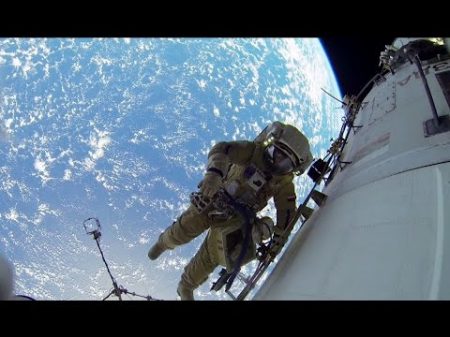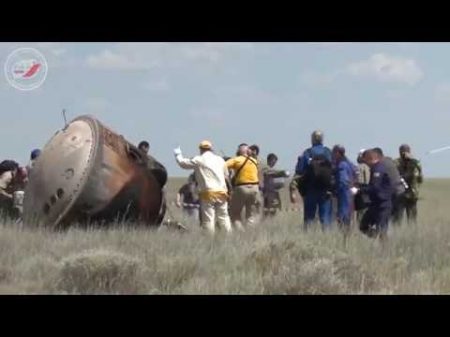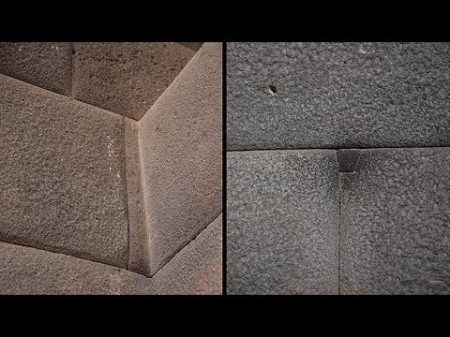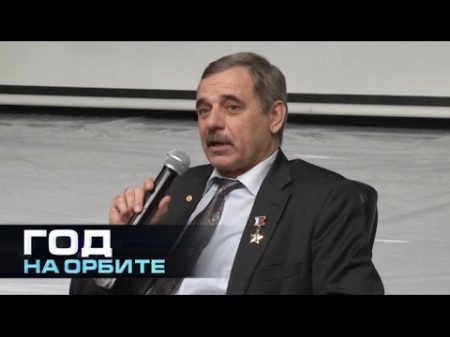Год на орбите Следующая остановка Марс Фильм 14 A Year In Space Next Stop Mars
Подпишись на «Наука 2.0»: goo.gl/ek252Q
Михаил Корниенко вернулся на Землю. Но его экспедиция еще не закончена. Космонавта практически сразу после приземления «взяли в оборот» врачи и ученые. Первые тесты были проведены прямо в казахстанской степи, на месте посадки спускаемого аппарата. А в Звездном городке, в центре подготовки космонавтов, участник годовой экспедиции Михаил Корниенко принял участие в нескольких экспериментах. Все они направлены на то, чтобы понять, на что способен человек после такого длительного полета? И что нужно менять и улучшать в программе космической подготовки, учитывая то, что следующая остановка человечества в космосе — это, вероятнее всего, Марс.
Спецпроект «Год на орбите» авторами которого стали сами космонавты. В формате космического видеоблога они ведут репортаж с борта МКС. Формат реалити-шоу впервые позволит показать жизнь экипажа на станции глазами космонавтов, как она есть: от момента подготовки и облачения в скафандр до возвращения на Землю.
Наши ресурсы:
Официальный сайт: www.naukatv.ru/
ВК: vk.com/tv_nauka
Facebook: www.facebook.com/nauka20
ОК: ok.ru/group/52977282973900
Смотрите передачи:
Агрессивная среда — bit.ly/AggressiveEnvironment
Анатомия монстров — bit.ly/MonstersAnatomy
Бионика — bit.ly/ScienceBionics
Большой скачок — bit.ly/GreatLeapForward
Британские ученые доказали — bit.ly/BritishScientists
Год на орбите — bit.ly/AYearInSpace
Градусы риска — bit.ly/DegreeOfRisk
Джуманджи. Животные в мегаполисе — bit.ly/JumanjiAnimals
EXперименты — bit.ly/EXperiments
На пределе — bit.ly/OnTheLimit
Настоящая история — bit.ly/GenuineStory
Нездоровый сезон — bit.ly/UnhealthySeason
НЕпростые вещи — bit.ly/NONsimpleThings
Опыты дилетанта — bit.ly/AmateurExperiments
Правила жизни 100-летнего человека — bit.ly/How2Live100
Тайны мозга — bit.ly/BrainSecrets
Химия вкуса — bit.ly/ChemistryOfTaste
---
A Year In Space. Next Stop: Mars
The last episode of unique documentary series «A Year in Space».
The first tests of cosmonauts after landing straight in Kazakhstan prairie and then in Zvyozdny gorodok. All of them are made to understand what a man is able to do after such a long flight? And what we need to change and improve in the space training program, considering that the next stop of mankind in space is likely to Mars.
--
In March 2015, Russian Cosmonauts Mikhail Kornienko and Gennady Padalka, and American Astronaut Scott Kelly began collaborative investigations on the International Space Station (ISS). Due to its length, it is a record setting voyage during the whole ISS history. The One-Year Mission focused on several categories of research. These investigations yielded beneficial knowledge on the medical, psychological and biomedical challenges faced by space explorers during long-duration spaceflight.
Wednesday, March 2, 2016. After a yearlong mission to the International Space Station, Russian cosmonaut Mikhail Kornienko and NASA astronaut returned to their home planet.
Kornienko and Kelly spent a whopping 340 days on the space station during their yearlong flight.
They didn't go anywhere new — besides sailing more than 17,000 mph (27,359 km/h) around the Earth — but the one-year astronauts are still explorers pushing the frontier of what we understand about the human body in space. (And the human mind, with five behavioral health investigations that examined cognitive performance, sleep, brain structure, emotion and fatigue.)
--
How to sleep, eat, drink or shave in zero gravity? All the details of life in space were recorded on camera. Unique footage formed the basis of the documentary series called «A Year in Space».
Experience the world with the channel «Science 2.0»: goo.gl/ek252Q
Михаил Корниенко вернулся на Землю. Но его экспедиция еще не закончена. Космонавта практически сразу после приземления «взяли в оборот» врачи и ученые. Первые тесты были проведены прямо в казахстанской степи, на месте посадки спускаемого аппарата. А в Звездном городке, в центре подготовки космонавтов, участник годовой экспедиции Михаил Корниенко принял участие в нескольких экспериментах. Все они направлены на то, чтобы понять, на что способен человек после такого длительного полета? И что нужно менять и улучшать в программе космической подготовки, учитывая то, что следующая остановка человечества в космосе — это, вероятнее всего, Марс.
Спецпроект «Год на орбите» авторами которого стали сами космонавты. В формате космического видеоблога они ведут репортаж с борта МКС. Формат реалити-шоу впервые позволит показать жизнь экипажа на станции глазами космонавтов, как она есть: от момента подготовки и облачения в скафандр до возвращения на Землю.
Наши ресурсы:
Официальный сайт: www.naukatv.ru/
ВК: vk.com/tv_nauka
Facebook: www.facebook.com/nauka20
ОК: ok.ru/group/52977282973900
Смотрите передачи:
Агрессивная среда — bit.ly/AggressiveEnvironment
Анатомия монстров — bit.ly/MonstersAnatomy
Бионика — bit.ly/ScienceBionics
Большой скачок — bit.ly/GreatLeapForward
Британские ученые доказали — bit.ly/BritishScientists
Год на орбите — bit.ly/AYearInSpace
Градусы риска — bit.ly/DegreeOfRisk
Джуманджи. Животные в мегаполисе — bit.ly/JumanjiAnimals
EXперименты — bit.ly/EXperiments
На пределе — bit.ly/OnTheLimit
Настоящая история — bit.ly/GenuineStory
Нездоровый сезон — bit.ly/UnhealthySeason
НЕпростые вещи — bit.ly/NONsimpleThings
Опыты дилетанта — bit.ly/AmateurExperiments
Правила жизни 100-летнего человека — bit.ly/How2Live100
Тайны мозга — bit.ly/BrainSecrets
Химия вкуса — bit.ly/ChemistryOfTaste
---
A Year In Space. Next Stop: Mars
The last episode of unique documentary series «A Year in Space».
The first tests of cosmonauts after landing straight in Kazakhstan prairie and then in Zvyozdny gorodok. All of them are made to understand what a man is able to do after such a long flight? And what we need to change and improve in the space training program, considering that the next stop of mankind in space is likely to Mars.
--
In March 2015, Russian Cosmonauts Mikhail Kornienko and Gennady Padalka, and American Astronaut Scott Kelly began collaborative investigations on the International Space Station (ISS). Due to its length, it is a record setting voyage during the whole ISS history. The One-Year Mission focused on several categories of research. These investigations yielded beneficial knowledge on the medical, psychological and biomedical challenges faced by space explorers during long-duration spaceflight.
Wednesday, March 2, 2016. After a yearlong mission to the International Space Station, Russian cosmonaut Mikhail Kornienko and NASA astronaut returned to their home planet.
Kornienko and Kelly spent a whopping 340 days on the space station during their yearlong flight.
They didn't go anywhere new — besides sailing more than 17,000 mph (27,359 km/h) around the Earth — but the one-year astronauts are still explorers pushing the frontier of what we understand about the human body in space. (And the human mind, with five behavioral health investigations that examined cognitive performance, sleep, brain structure, emotion and fatigue.)
--
How to sleep, eat, drink or shave in zero gravity? All the details of life in space were recorded on camera. Unique footage formed the basis of the documentary series called «A Year in Space».
Experience the world with the channel «Science 2.0»: goo.gl/ek252Q
развернуть свернуть
05:51
- Комментарии
RSS
Нет комментариев. Ваш будет первым!
Войдите или зарегистрируйтесь чтобы добавлять комментарии



